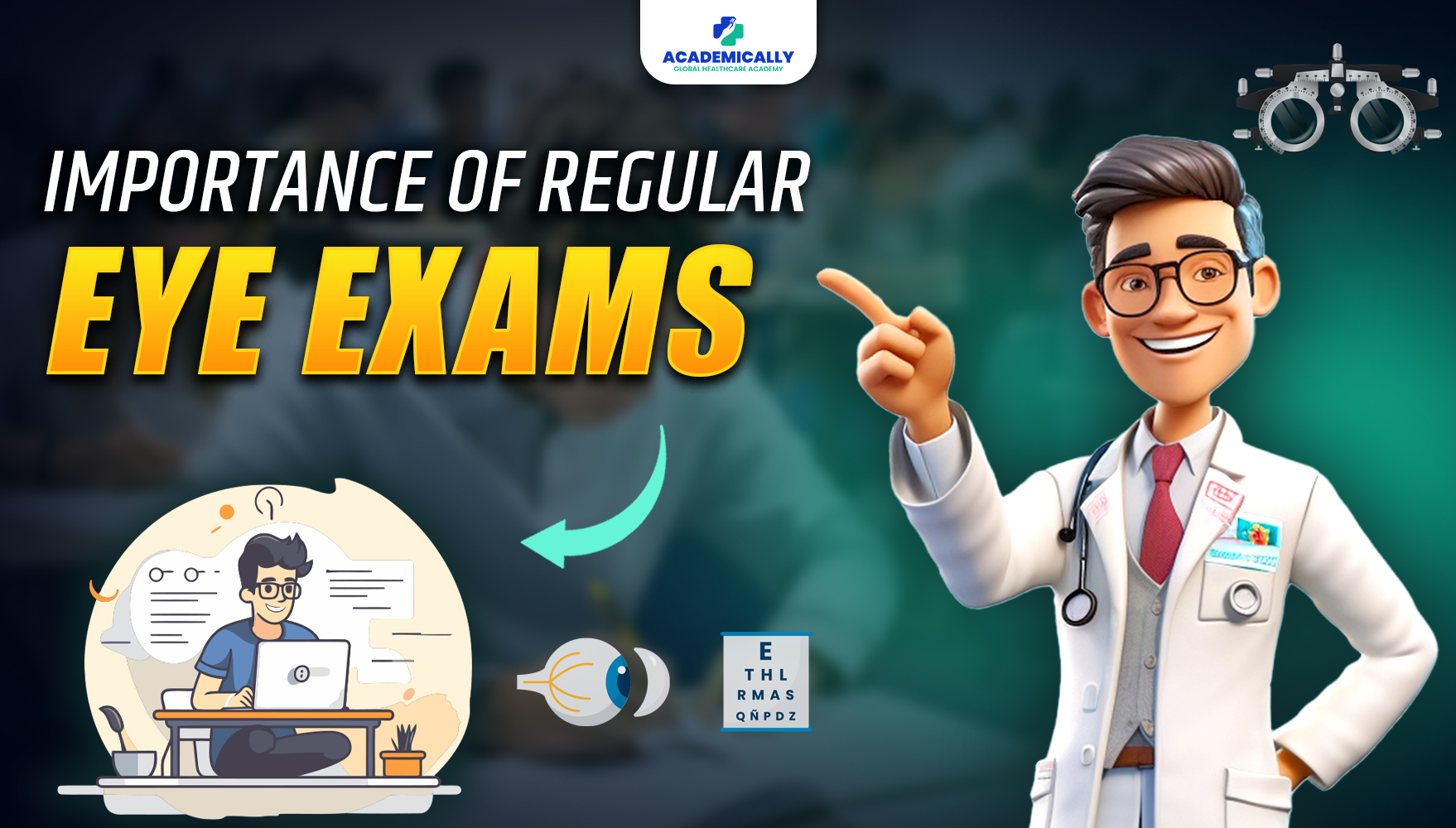Why Regular Eye Examination is Important?
Eye diseases can be common and often go unnoticed for a long time, as some may not exhibit symptoms in the early stages. This is why comprehensive dilated eye exams conducted by optometrists or ophthalmologists are necessary to identify eye diseases early on when treatment is most effective. These exams test visual acuity, depth perception, eye alignment, and eye movement. Eye drops may also be used to dilate the pupils, allowing the eye doctor to examine the internal structures of the eyes for signs of health problems. Besides detecting eye diseases, eye doctors may also identify other health conditions, such as high blood pressure or diabetes, during these exams.
Common Eye Diseases
Regular eye exams are crucial in preventing permanent vision loss or blindness caused by common eye diseases such as cataracts, diabetic retinopathy, glaucoma, and age-related macular degeneration (AMD). Cataracts, the clouding of the lens, are the leading cause of vision loss in the United States. Diabetic retinopathy, which damages blood vessels in the back of the eye, is the leading cause of blindness in American adults. Glaucoma is a group of diseases that damage the optic nerve, and AMD involves the gradual breakdown of light-sensitive tissue in the eye. Early treatment and detection of these conditions are essential in preventing vision loss.
Vision Care Can Change Lives
It is estimated that around 93 million adults in the United States are at high risk for vision loss. However, only half of them visit an eye doctor regularly. By ensuring regular eye care, the vision of millions of people can be preserved, positively impacting their quality of life. In addition to regular eye exams, using protective eyewear to prevent injury is another way to safeguard vision.
Eye Exams for Children
While it is commonly believed that vision problems are more prevalent among older individuals, it is important not to overlook the eye health of children. Children also need regular eye exams to ensure healthy vision. Amblyopia, a condition where reduced vision occurs due to the eye and brain not working together properly, is the most common cause of vision loss in children. Early diagnosis and treatment of amblyopia can help prevent vision loss. The US Preventive Services Task Force recommends vision screening for all children between the ages of 3 and 5 years to detect amblyopia or risk factors for the disease.
Frequency of Eye Exams
The frequency of eye exams varies depending on age and individual risk factors. It is recommended that children have their eyes checked regularly by an eye doctor or pediatrician. Regular eye exams are essential for adults with diabetes, who should undergo a dilated eye exam yearly. Certain individuals are also at a higher risk of glaucoma and should have a dilated eye exam every two years. This includes African Americans aged 40 and older, all adults over the age of 60 (especially Mexican Americans), and those with a family history of glaucoma.
Protecting Your Vision: 5 Tips
There are several ways to protect your vision and maintain good eye health. Incorporating these habits into your lifestyle can help preserve your vision for years to come:
- Get regular eye exams: Regular eye exams are the foundation of maintaining good eye health. They allow for early detection and treatment of any potential eye diseases.
- Maintain a healthy diet: A healthy diet rich in nutrients, particularly leafy greens like spinach and kale, can contribute to good eye health.
- Know your family's eye health history: Understanding your family's eye health history can help you identify potential genetic risks and take proactive measures to protect your vision.
- Wear sunglasses: Protecting your eyes from harmful UV-A and UV-B radiation is important. When choosing sunglasses, opt for those that block out 99% to 100% of these rays.
- Quit smoking: Smoking is detrimental to overall health, including eye health. Quitting smoking or avoiding it altogether can positively impact your vision.
Easy on the Eyes: Reducing Eyestrain
In today's digital age, many people spend prolonged periods focusing on screens, such as computers and smartphones. This can lead to eyestrain and discomfort. To reduce eyestrain, experts recommend following the 20-20-20 rule: every 20 minutes, look away from the screen and focus on an object about 20 feet away for 20 seconds. This simple practice can help alleviate eye fatigue and maintain good eye health.
When to See Your Eye Doctor
While regular eye exams are important, it is essential not to wait until your next appointment if you experience eye problems. If you notice decreased vision, eye pain, redness, double vision, floaters, or halos around lights, you must visit your eye doctor as soon as possible. These symptoms may indicate underlying eye conditions that require immediate attention.
Diabetes and Eye Health
People with diabetes are at a higher risk of developing eye diseases such as diabetic retinopathy, glaucoma, and cataracts. Diabetic retinopathy, in particular, is a common complication of diabetes that can cause permanent vision loss. Regular eye exams are vital for individuals with diabetes to protect their eyesight and overall eye health. Early detection and treatment can prevent or delay blindness due to diabetic retinopathy in 90% of people with diabetes.
Looking Ahead
As the population ages, the number of blind and visually impaired individuals in the United States is projected to increase significantly. Encouraging people to prioritize their vision health as part of their overall health and wellness can help reduce the burden of vision loss and improve the quality of life for millions of Americans.
Conclusion
Regular eye exams play a crucial role in maintaining lifelong vision health. By detecting eye diseases early on, these exams can prevent permanent vision loss and blindness. It is important to prioritize eye health by scheduling regular exams, adopting healthy habits, and seeking immediate attention for any eye problems. Taking these proactive measures can help preserve your vision and ensure a lifetime of healthy eyesight.
Fill up this form for a free one on one counselling session.



